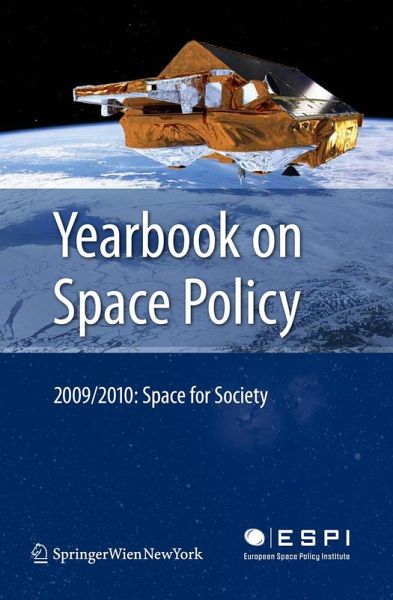
Yearbook on Space Policy 2009/2010
Space for Society
Herausgegeben: Schrogl, Kai-Uwe; Pagkratis, Spyros; Baranes, Blandina
Versandkostenfrei!
Versandfertig in 6-10 Tagen
76,99 €
inkl. MwSt.

PAYBACK Punkte
38 °P sammeln!
The Yearbook on Space Policy is the reference publication analysing space policy developments. Each year it presents issues and trends in space policy and the space sector as a whole. Its scope is global and its perspective is European. The Yearbook also links space policy with other policy areas. It highlights specific events and issues, and provides useful insights, data and information on space activities. The Yearbook on Space Policy is edited by the European Space Policy Institute (ESPI) based in Vienna, Austria. It combines in-house research and contributions of members of the European S...
The Yearbook on Space Policy is the reference publication analysing space policy developments. Each year it presents issues and trends in space policy and the space sector as a whole. Its scope is global and its perspective is European. The Yearbook also links space policy with other policy areas. It highlights specific events and issues, and provides useful insights, data and information on space activities. The Yearbook on Space Policy is edited by the European Space Policy Institute (ESPI) based in Vienna, Austria. It combines in-house research and contributions of members of the European Space Policy Research and Academic Network (ESPRAN), coordinated by ESPI. The Yearbook is designed for government decision-makers and agencies, industry professionals, as well as the service sectors, researchers and scientists and the interested public.












